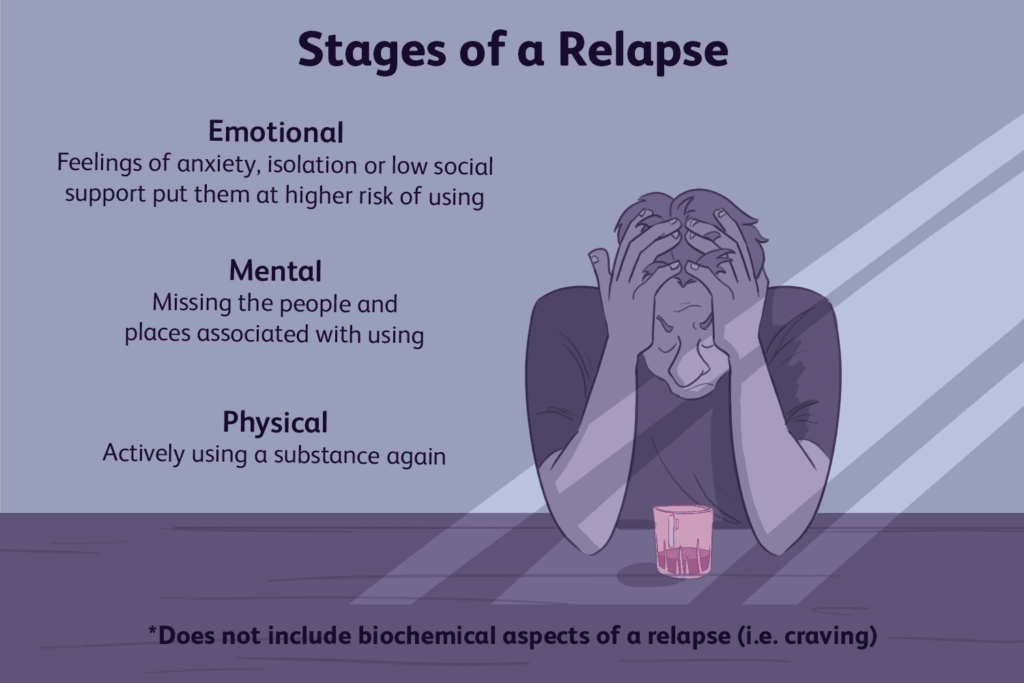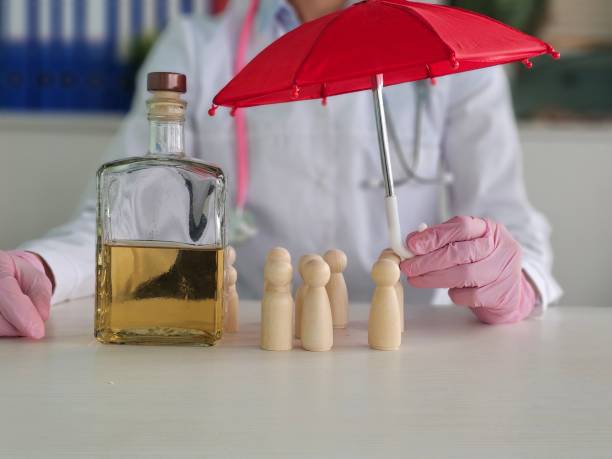Relapse is when a patient returns to a previous state or condition, often after a period of improvement or recovery. Relapse refers to the return to substance use or undesirable behaviors after a period of improvement. It is a process that often happens gradually, rather than suddenly. Prevention is essential and better than cure. There are many stages of relapse emotional, physical, and mental. Factors contributing to relapse stress, lack of support, unhealthy coping mechanisms, trauma, and medical conditions.
Relapse prevention is a critical aspect of maintaining long-term recovery from addiction or behavior change. It involves developing strategies and skills to avoid returning to old, harmful habits. Relapse prevention is given by ongoing therapy and support, healthy coping strategies, self-care and mindfulness, and lifestyle changes. There are many benefits of relapse prevention such as sustained recovery, improved mental health, enhanced coping skills, and better quality of life.
The stages of relapse prevention:
There are different stages of relapse prevention. Prevention of any disorder is very essential. It does not suddenly happen because it develops into three stages emotional, mental, and physical. All these stages are step by step.

Emotional relapse: In this stage, the individual does not think about using any harmful substance as drug addiction but their behavior and emotions set the groundwork for relapse. Different types of emotions relapse like not attending support meetings, poor self-care, and mood swings.
Mental relapse: Part of them wants to remain sober, but another part is contemplating returning to their old behaviors. Signs of mental relapse are insolation, defensiveness, minimizing consequences, and loss of motivation. There are many factors of mental relapse like unmanaged stress, poor coping skills, lack of support, and mental health.
Physical Relapse: In this stage individual physically return to their old behavior by consuming drugs, and alcohol. It causes relationship damage, loss of self-respect, and legal issues.
What are mindfulness-based relapse prevention strategies:
We use different behavioral techniques to prevent relapse and help individuals maintain mindfulness. This technique set thoughts and feelings without any harm. Mindfulness is the exercise of paying attention to the present moment.
Benefits of mindfulness in relapse prevention:
The benefits of mindfulness in relapse prevention are increased awareness, enhanced emotional regulation, and improved stress management. Awareness of cravings is an important strategy of mindfulness-based relapse prevention that is aware of cravings without any damage.

Mindful breathing: Mindful breathing is a simple but powerful technique to help manage stress and cravings. It encourages slowing down and focusing on each breath, creating space between impulse and action. There are three steps of mindful breathing. Awareness takes a few moments to become aware of your thoughts, emotions, and body sensations. The second step is to focus on breathing gently bringing attention to breath. Expand attention after a few minutes, and expand your awareness of your entire body and surroundings.
Prevention of relapsing fever:
Relapsing fever is a disease caused by Borrelia bacteria, transmitted through lice or ticks. Preventing relapsing fever involves the use of good hygiene, and ensuring prompt medical care.
Louse-borne relapsing fever: This fever is transmitted through human body lice commonly in areas with poor hygiene.
Tick-borne relapsing fever: This is caused by soft ticks commonly in rural areas, particularly around animal burrows etc.
Preventing louse-borne relapsing fever: Regular bathing and drinking hot water can help alleviate relapsing fever. Louse infestations are more common in densely populated areas with inadequate sanitation. Frequently check for lice and nits (lice eggs), especially in areas with outbreaks. In places with known lice infestations, insecticide-treated clothing and bedding can be effective.

Relapse prevention plan, a step-by-step guide:
A relapse prevention plan personalizes strategy to help individuals in recovery avoid falling back into substance use or harmful behaviors. We can reduce stress by playing games and other similar activities.
The best relapse prevention techniques:
Relapse prevention techniques are vital tools that help individuals in long-term recovery.
Common external triggers: Situations, people, places, or events that remind you of past substance use. External triggers are environmental factors that can prompt cravings or thoughts of returning to addictive behaviors.
Common internal triggers: Stress, anxiety, depression, overconfidence in recovery. Internal triggers are emotional states that increase the risk of relapse.
Conclusion:
Relapse prevention is a process that requires coping skills, and self-awareness. By developing a prevention plan, and staying committed to recovery, individuals can significantly reduce the risk of relapse and maintain a healthy lifestyle. Relapse prevention requires proper strategies to solve triggers, and maintain support systems.


